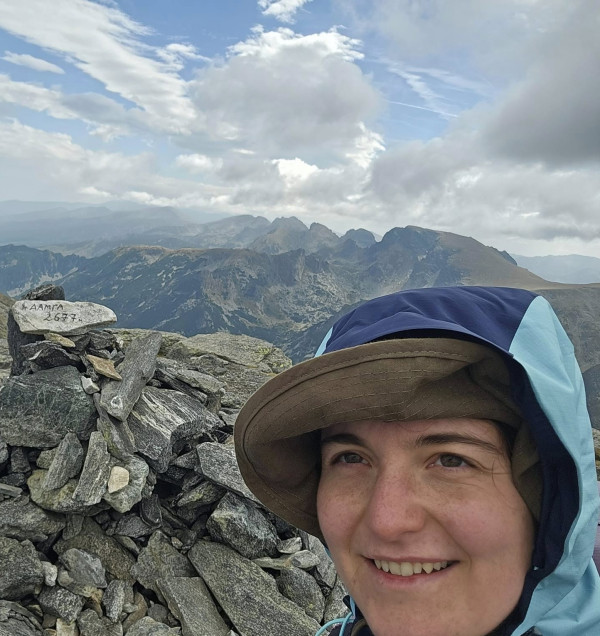Niya Petkova
Interview by Nicola Nosengo, NCCR MARVEL on 23 October 2025
Have you always been interested in science?
I always found myself throughout school picking maths and physics classes when I had a choice. I was surely curious to know more about physics, but I think the fact that I really liked the environment in those classes also had to do a lot with it. At the same time, what I was really obsessed with was writing. I wasn’t even convinced that I wanted to go to university back then, but I made a compromise with myself that I was going to just try it out and if I didn’t like it, I could always quit after a year. And I chose physics because I had this teenager attitude that if I was going to study something it had better be hard.

Niya Petkova
How did you hear about the INSPIRE Potentials Program?
I was interested in combining physics and machine learning and there were a couple of people doing that at EPFL. I was just searching through their web pages and considering applying for a PhD, and, at some point, I found myself on the MARVEL web page and learned about the fellowship.
What is the topic of your master’s project?
I am working on neural quantum states, that are one of Giuseppe Carleo’s group’s main topics. They are a way to study the ground states of complex systems, currently mostly spin systems, but also expanding onto continuous ones. The problem is that in general quantum systems have many degrees of freedom. The space of possible states grows exponentially with system size, and you can’t easily find the ground state. What we do instead is to represent their wave functions as neural networks, in this case a vision transformer. I am working on optimizing the parameters of the transformer until we get a low energy state that is hopefully a good approximation to the ground state. I am concentrating specifically on the anisotropic Heisenberg lattice, where you can interpolate between a square lattice and a triangular lattice. Because the square and the triangular lattices have different magnetic orders, in the region in-between where they compete, you may get a particular phase of matter called a quantum spin liquid, which has non-trivial magnetic properties.
Do you think women face specific challenges in the sciences?
I don’t see any reason why a career in science should be harder for women, especially at the beginning of their career. In later stages, I imagine having to change country and positions often when you might also be raising children would be hard. But then in an ideal society that should not affect women any more than men. I don’t really see why younger female students don’t choose physics more. I guess it’s just that it used to be like that, and society changes very slowly.
Any advice for young girls interested in science?
The best thing I did was to always be ready to try different things and have this attitude that if I didn’t like them, that was perfectly fine. I might just end up dropping something, but it was still worth trying it out. For the more confused sub-sample of students, I think that’s good advice. Try everything and see what happens.
What are your plans for the future?
Right now, I’m focused on PhD applications and will see what comes from that. But I don’t rule out a career in industry, especially if it allows me to do research.
